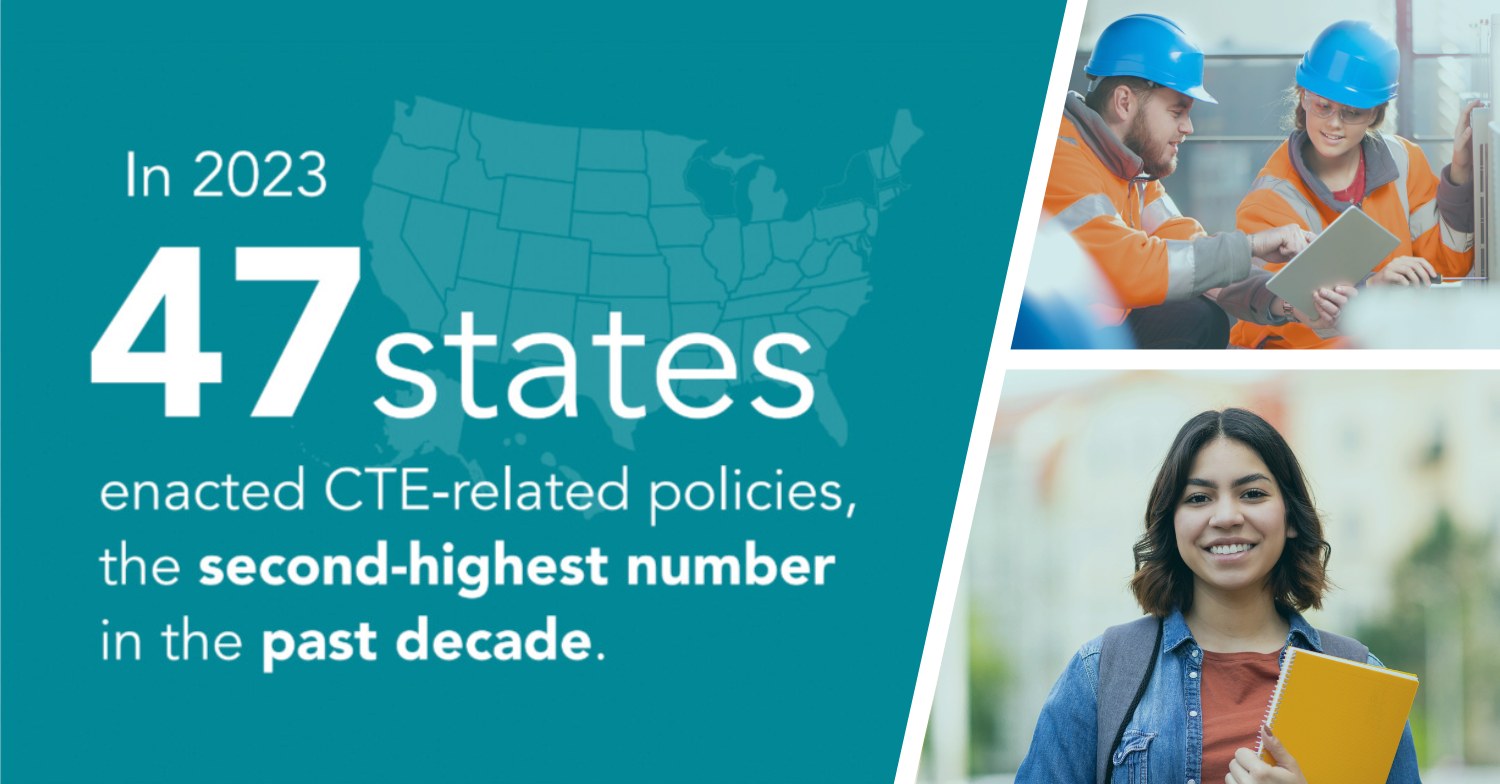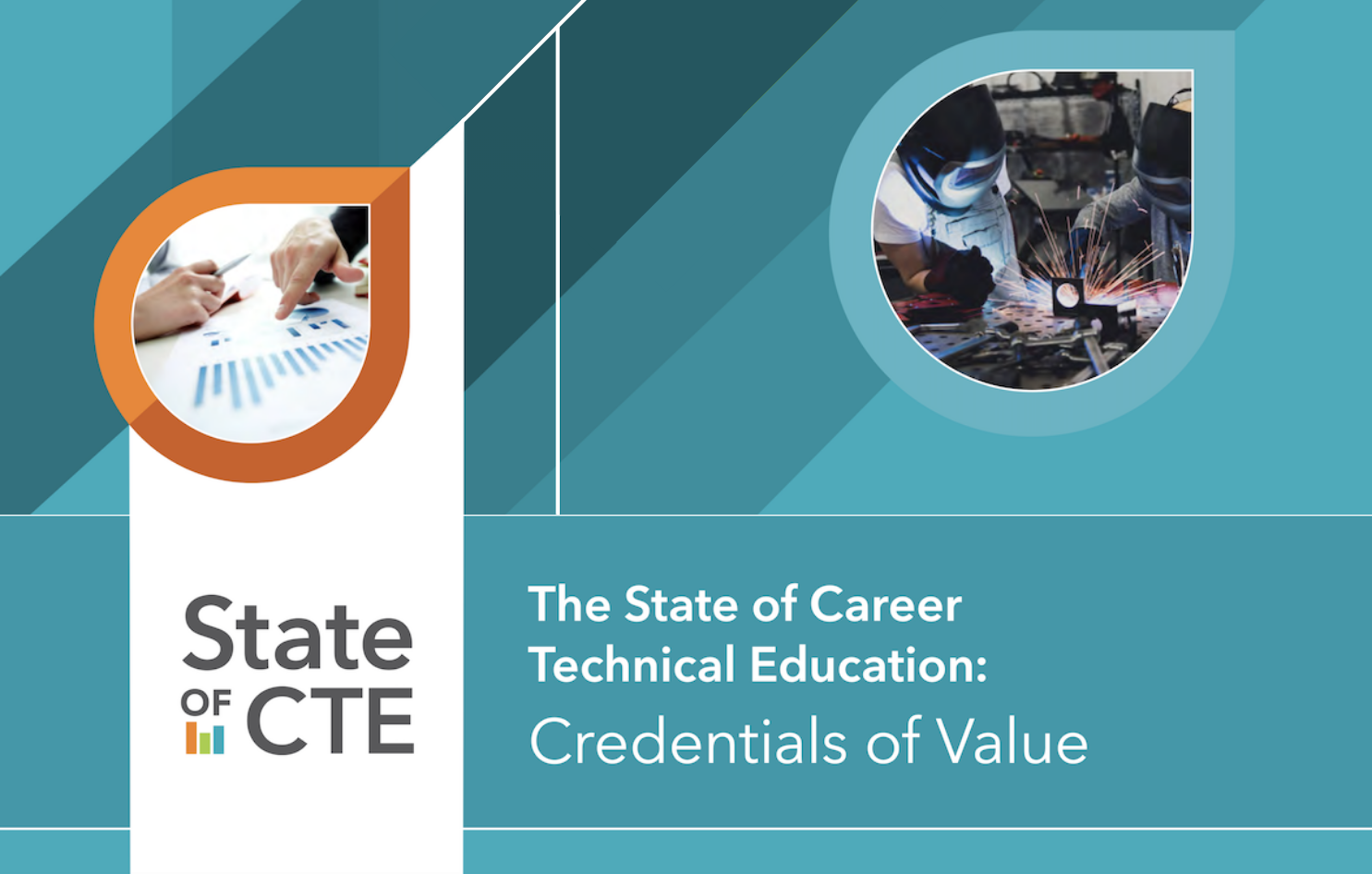State Resources
Home » What We Do » State Resources
State Policy Resources
Advance CTE is a national leader in providing state CTE leaders timely insights, research and tools that elevate best practices and guide the field towards continuous improvement.
Advance CTE routinely provides the CTE community with intuitive and timely tools, resources and knowledge required to support high-quality CTE. These resources include policy briefs on key CTE topics, success stories from on-the-ground implementation and relevant research from the field.
New to CTE? Get started with our introductory fact sheets and the Learning that Works Resource Center.

Annual State Policy Trends
Since 2013, Advance CTE has informed the field on innovative state policies and national trends related to CTE and career readiness through an annual Year in Review report. This resource, produced in partnership with the Association for Career and Technical Education (ACTE), groups trends into a variety of ategories, including industry partnerships and work-based learning; funding; access and supports; data, reporting and/or accountability; and industry-recognized credentials.
State Policy Tracker
Advance CTE’s new longitudinal policy tracker is a compilation of over ten years of Year in Review reports, compiling state-level policy enacted since 2013, including CTE-related budgets, legislation, executive orders or state board of education actions across the 50 states and U.S. territories. This tracker is filterable by year, state, system, or content area. Our team is working to ensure this tool is as functional as possible, however due to changes to state websites, some links may not exist or are broken. This policy listing is validated annually by State CTE Directors, but if you have questions about incomplete or missing information, please email Associate Director of State Policy Dan Hinderliter.
Research Warehouse Dashboard
Advance CTE’s Research Warehouse Dashboard will provide CTE leaders with relevant and timely CTE research that covers a wide range of topics and evidence-based outcomes such as return on investment, academic performance and postsecondary credential attainment.
State of CTE Reports
To understand the current status of CTE in the United States, Advance CTE conducts a yearly scan of CTE connected to a timely policy issue. The resulting annual report provides recommendations based on 50-state surveys, research, and case studies across topics including career advising, secondary CTE funding models, employer engagement. and early postsecondary opportunities.
Toolkits
Our toolkits provide a step by step process for state CTE leaders to identify strengths and challenges in key CTE system structures, as well as a short and long-term path towards enhanced quality, access, and alignment of CTE experiences for all learners.
- With Learners, Not for Learners: A Toolkit for Elevating Learner Voice in CTE
- Effectively Communicating CTE to Engage Every Learner: A Recruitment and Engagement Tool
- Embedding Credit for Prior Learning in Career Pathways
- Career Readiness Data Quality and Use Policy Benchmark Tool
- CTE Program of Study Approval Policy Benchmark Tool

